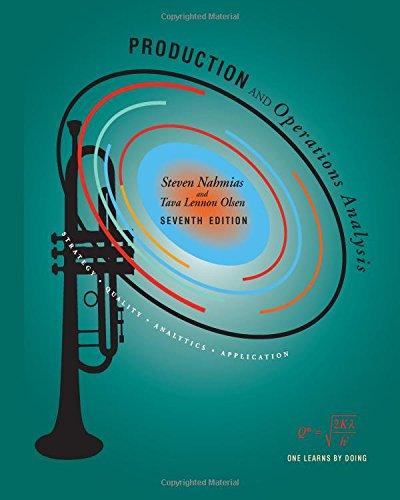
Four Seasons Total Landscaping NOTE ON ANSWER ACCURACY: In all parts of this question, the answer must be accurate to 2 decimal places. It will be considered correct if it is within +/- 0.01 of the correct answer. For example, if the correct answer to a question is "15.70", then "15.69" and "15.74" will also be correct. This is because many parts of the question set depends on the previous parts. So you want to make sure you have the correct value and understanding before moving on. Four Seasons Total Landscaping is an all-equity firm that has been in existence for the past three years. Company management expects that the company will last for two more years and then be dissolved. The company will generate a free cash flow of $839, 300 one year from today and then its final free cash flow of $1, 164, 338 two years from today. This second cash flow incorporates all of the proceeds from the liquidation process. Assume that the current dividend policy of the firm is to pay out all available free cash flow each year to its shareholders. There are 70,000 shares outstanding and the shareholders currently require a return of 9% per annum. The board of directors of Four Seasons Total Landscaping is dissatisfied with the current dividend policy and proposes that a $1, 144,500 dividend be paid one year from today (i.e. at t=1). To raise the extra cash needed necessary for the increased dividend, the company will sell new shares at t=1 in order to immediately pay out the proceeds to the existing shareholders as the board of directors' desired dividend. c) What must be the total value at t=1 of both the existing shares and the newly issued shares together? It may be helpful to remember that, at that time, the only remaining cash flow will be the final liquidating t=2 cash flow of one year later. The value of both the existing and new shares must together be worth $ at t=1 (Round to 2 decimal places. Use the unrounded value in any future calculations that need it) D) How many new shares must be sold at t=1 to new investors to raise the required funds needed for this increased dividend at t=1 paid to existing investors? The firm must issue new shares at t=] in order to raise the extra funding. (Round to 2 decimal places. You may assume that fractional shares are possible. Use the unrounded value in any future calculations that need it) Four Seasons Total Landscaping NOTE ON ANSWER ACCURACY: In all parts of this question, the answer must be accurate to 2 decimal places. It will be considered correct if it is within +/- 0.01 of the correct answer. For example, if the correct answer to a question is "15.70", then "15.69" and "15.74" will also be correct. This is because many parts of the question set depends on the previous parts. So you want to make sure you have the correct value and understanding before moving on. Four Seasons Total Landscaping is an all-equity firm that has been in existence for the past three years. Company management expects that the company will last for two more years and then be dissolved. The company will generate a free cash flow of $839, 300 one year from today and then its final free cash flow of $1, 164, 338 two years from today. This second cash flow incorporates all of the proceeds from the liquidation process. Assume that the current dividend policy of the firm is to pay out all available free cash flow each year to its shareholders. There are 70,000 shares outstanding and the shareholders currently require a return of 9% per annum. The board of directors of Four Seasons Total Landscaping is dissatisfied with the current dividend policy and proposes that a $1, 144,500 dividend be paid one year from today (i.e. at t=1). To raise the extra cash needed necessary for the increased dividend, the company will sell new shares at t=1 in order to immediately pay out the proceeds to the existing shareholders as the board of directors' desired dividend. c) What must be the total value at t=1 of both the existing shares and the newly issued shares together? It may be helpful to remember that, at that time, the only remaining cash flow will be the final liquidating t=2 cash flow of one year later. The value of both the existing and new shares must together be worth $ at t=1 (Round to 2 decimal places. Use the unrounded value in any future calculations that need it) D) How many new shares must be sold at t=1 to new investors to raise the required funds needed for this increased dividend at t=1 paid to existing investors? The firm must issue new shares at t=] in order to raise the extra funding. (Round to 2 decimal places. You may assume that fractional shares are possible. Use the unrounded value in any future calculations that need it)







